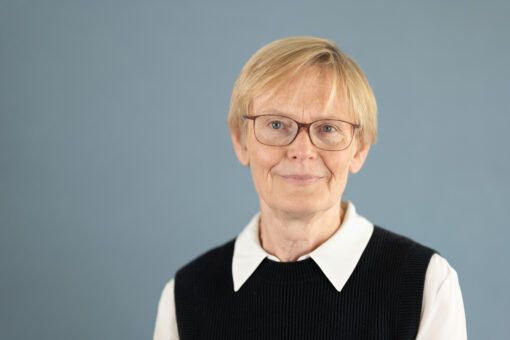
Sarah will take up the post formally in January 2024 when the current Chair of the Nuffield Council, Professor Dave Archard, steps down from the role. In the meantime, Sarah will join the NCOB as a Member of the Council until she takes up the role of Chair.
Sarah is Professor of Medical and Family Sociology at the University of Edinburgh. She is Dean of Molecular, Genetic and Population Health Sciences, Edinburgh Medical School, and the University lead for Equality, Diversity and Inclusion.
Sarah’s research focusses on the social and ethical contexts of medical technologies, data science, engagement, health, and disease. She is co-director of the Centre for Biomedicine, Self and Society, supported by Wellcome, which conducts interdisciplinary research across the humanities and social sciences relevant to biomedicine, public health, and health care.
Sarah has a long-standing interest in public engagement with research and its role in governance. Over recent years this has involved using dialogue and deliberation to engage publics in discussing the social and ethical issues in data-intensive health research. She was a co-lead on the UKRI-funded UK Pandemic Ethics Accelerator ‘Public values, transparency, and governance’ workstream.
Sarah will succeed Dave Archard who has Chaired the NCOB since 2017. Sarah is formally appointed to the five-year role as Chair by the NCOB’s funders: the Nuffield Foundation, the Medical Research Council which is part of UKRI, and Wellcome. The selection panel was Chaired by Sir Keith Burnett, Chair of the Nuffield Foundation.
Professor Sarah Cunningham-Burley said:
I am delighted to be offered this outstanding opportunity to work with the Nuffield Council on Bioethics to explore and address the ethical issues and impacts of developments in health and life sciences. These affect us all, as a society and as individuals, and the difficult decisions we have to make about health and new possibilities that arise with scientific developments. The Nuffield Council on Bioethics plays an incredibly important role as a trusted source of independent advice and information. I look forward to working with colleagues to take this work forward over the next five years as we face the pressing challenges ahead.
Professor Dave Archard, Chair of the Nuffield Council on Bioethics, said:
I congratulate Sarah Cunningham-Burley on her appointment to Chair of Council and welcome her as a Council Member until I step down. The role is a challenging but enormously rewarding one and I have no doubt she will discharge it with integrity and a clear commitment to the defining values of the Nuffield Council on Bioethics.
Dr Claire Newland, Director of Policy, Ethics and Governance at the Medical Research Council, part of UK Research & Innovation, said:
We offer a very warm welcome to Sarah Cunningham-Burley in her new role as Chair of the Nuffield Council of Bioethics. Sarah played an integral role in the UKRI-funded UK Pandemic Ethics Accelerator workstream into public values, transparency and governance and we’ve no doubt of the value she will add to the NCOB’s important role in addressing the ethical issues raised by the rapid advances in biological and medical research.
Dr Dan O’Connor, Head of Research Environment at Wellcome, said:
I am delighted to welcome Sarah Cunningham-Burley as the new Chair of the Nuffield Council on Bioethics. Sarah’s research at the intersections of bioethics, sociology and medicine has been globally influential, and her pioneering leadership in bringing together voices from across the academy and society to address key ethical issues has been inspirational. Sarah will bring to the role of Chair a wealth of experience in the interdisciplinary and engaged approaches necessary to successfully deliver the NCOB’s ambitious and important agenda.
Professor Sir Keith Burnett FRS, Chair of the Nuffield Foundation said:
I am delighted that Professor Sarah Cunningham-Burley has been appointed as the next Chair of the Nuffield Council on Bioethics. Sarah is an eminent academic whose longstanding commitment to the social and ethical contexts of medical technologies and multidisciplinary approach to biomedicine, public health and health care is an excellent match for the work of the Council. She also has deep experience of involving a wide range of stakeholders in the social and ethical issues involved in research. Professor Cunningham-Burley takes up this position from Professor Dave Archard who has so ably led the Council on its critical and trusted work of providing independent advice to policy makers and stimulating informed debate in the public interest. We all owe him an enormous debt of gratitude for his judgment and leadership.